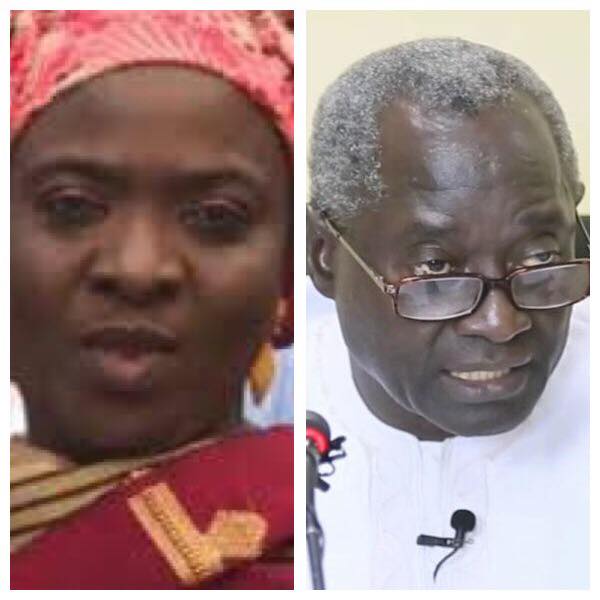By Sana Sarr
It has been reported that on Thursday, March 15, 2018, a heated exchange took place between National Assembly Member from Serekunda, Halifa Sallah, and the Speaker of the National Assembly, Mariam Jack Denton. According to reports, Finance Minister, Amadou Sanneh, brought a framework agreement asking parliament to approve a loan deal between the government of The Gambia and China. Reports have it that Mr. Sallah demanded to see the full details of the loan before they can vote on it rather than rely only on the framework. Finance Minister proceeded to argue on the urgency and importance of the loan but Mr. Sallah was refused to budge. A vote ensued and members voted 18:12 in favor of waiting to see the full details of the loan. Somehow, in the proceeding discussions, things escalated and the speaker, Mariam Jack Denton, got involved and ended up ordering security to remove Sallah from the parliament.
The Worry
My first worry is the dictatorial tendencies exhibited by the speaker of the house. This is the house of parliament, a platform for representatives to resolve the most important and controversial national matters THROUGH DIALOGUE! The fact that the speaker could not keep control of the verbal confrontations is bad, but it is astounding that she quickly flew on a power trip to ask security to remove an elected representative of the people! WHAT? Where does the speaker think she is, a 2015 Jammeh-led dictatorship? I hope Speaker Denton is reminded that she was NOMINATED by politicians whereas the members of parliament were ELECTED by the Gambian taxpayers. Her job is to maintain decorum and facilitate dialogue. She’s supposed to be the adult in the room, not be one of the children throwing a tantrum. I hope the speaker remembers to leave the partisanship and ego trips are for the members.
In December 2017, there were reports that Speaker Denton barred journalists from livecasting proceedings at the National Assembly. The National Assembly is the people’s parliament and citizens have a right to see how their representatives are doing the job they were sent to do. Any form of restriction by the speaker is a violation of the people’s rights to information and I see no justifiable reason for the speaker to be engaged in such.
With almost every passing day, Gambians see more signs that makes one question just how different this new administration is to the one we got rid of. It’s far from encouraging to see that Finance Minister, Amadou Sanneh, had the audacity to bring a framework agreement and expect the National Assembly to sign off on it without reading the full details of a loan agreement. I am glad the parliament had Mr. Sallah to point it out, and 17 other MPs who refused to just rubber stamp another item on the Executive’s wishlist. Members of parliament are sent there to represent the general population and provide oversight on everything the executive does. The fact that the finance Minister representing the president even expected the National Assembly to sign off on the document without requesting to see the full details of the agreement suggests that they have no regard for the members. It is also a worrisome sign that they may not have hated how Jammeh did things, they just envied him.
The Lessons
I hope the National Assembly members, through this incident, realize how vulnerable they all can be in relation to the executive. Today it is Halifa Sallah getting kicked out, tomorrow it could be any of them. While the members are elected directly by the voters, the speaker is nominated by the President. This means that they owe their loyalty to the president at whose will they serve. Therefore, a speaker can simply shut down, or kick out, any member of parliament that they feel, or are instructed, is not serving the best interest of the president or his friends. This undermines the whole system of checks and balances and members would be wise to begin working on getting rid of it! This whole idea of nominated members is archaic and needs to be revisited.
I pray that our National Assembly members are also reminded of their responsibility and their powers. Members are not there to rubber stamp everything the executive tables. Their loyalties should remain with the ordinary citizens who voted for them and they need to always act in the best interest of the nation. Every proposition from the executive needs to be carefully scrutinized and thoroughly debated before being voted on. No proposition is too urgent for the parliament to pass before doing their due diligence of scrutinizing. Parliament holds power and the President and ministers should have a lot more respect for them, but this will only happen if the members earn that respect by proving that they’re men and women of integrity, not puppets to be pushed around.
I wish to remind the executive and the parliament that Gambian voters are paying close attention and taking notes. Every action will have consequences come election time.




